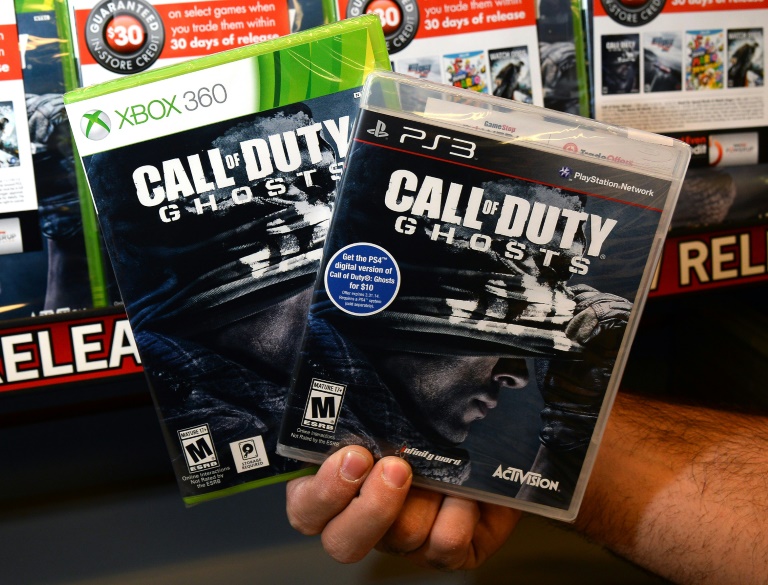Xbox-maker Microsoft and Activision Blizzard, whose video games include “Call of Duty” and “Candy Crush”, are set to seal one of the biggest technology tie-ups after overcoming final hurdles Friday.
British regulators have approved Microsoft’s $69-billion takeover, having blocked the deal in April over competition concerns.
The Competition and Markets Authority (CMA) said in a statement Friday that it had cleared “the new deal for Microsoft to buy Activision without cloud gaming rights” after concluding “it would preserve competitive prices and better services”.
Activision Blizzard chief executive Bobby Kotick said the two companies had “all regulatory approvals necessary to close (the deal) and… look forward to bringing joy and connection to even more players around the world”.
Microsoft vice chair and president Brad Smith thanked the CMA for its “thorough review” and approval.
“We have now crossed the final regulatory hurdle to close this acquisition, which we believe will benefit players and the gaming industry worldwide,” he added in a statement.
Microsoft launched its blockbuster takeover in January last year, aimed at making it the world’s third-largest gaming company by revenue, but it faced stiff scrutiny from regulators, including also in the United States.
“Microsoft has the ability to become the biggest gaming force around,” Sophie Lund-Yates, lead equity analyst at Hargreaves Lansdown, told AFP on Friday.
“That said, trends can change quickly in the gaming space so it will still need to continue spending the big bucks to make sure the blockbuster titles it now owns remain fan favourites.”
The CMA had blocked the deal over fears it would damage competition in the fast-growing cloud gaming sector, where games are bought virtually and players can use a variety of devices rather than just consoles.
But it dropped those objections last month ahead of its formal approval Friday.
Microsoft, which already has a stable of games under its belt including “Minecraft”, “Elder Scrolls” and “Fallout”, is the dominant player in the cloud-gaming world — its Game Pass service claims 25 million subscribers.
The original deal would have seen hugely popular Activision games including also “Overwatch” and “World of Warcraft” added to its cloud roster, which was too much for the UK regulator to stomach.
Under the new deal, Microsoft agreed it would not take control of the cloud portion of Activision’s business, which will be transferred to French studio Ubisoft for 15 years.
“With the sale of Activision’s cloud streaming rights to Ubisoft, we’ve made sure Microsoft can’t have a stranglehold over this important and rapidly developing market,” CMA chief executive Sarah Cardell said Friday.
“As cloud gaming grows, this intervention will ensure people get more competitive prices, better services and more choice. We are the only competition agency globally to have delivered this outcome.”
She again hit out over Microsoft’s handling of the regulatory process and warned other companies over employing similar tactics.
“Microsoft had the chance to restructure during our initial investigation but instead continued to insist on a package of measures that we told them simply wouldn’t work.
“Dragging out proceedings in this way only wastes time and money,” she added.
Alex Haffner, competition partner at UK law firm Fladgate, said “the question that is left hanging… is whether this case shows a merger oversight system in the UK that is too dogmatic”.
Aside from the concerns over cloud gaming, regulators had also worried that the initial deal would have allowed Microsoft to make Activision’s games exclusive to Xbox.
Microsoft and Sony, which had previously tried to block the Activision deal, agreed in July to keep releasing “Call of Duty” on the PlayStation.
The European Union cleared the Microsoft-Activision deal in May while the US antitrust regulator recently paused its attempt to block the buyout following a setback in court.






